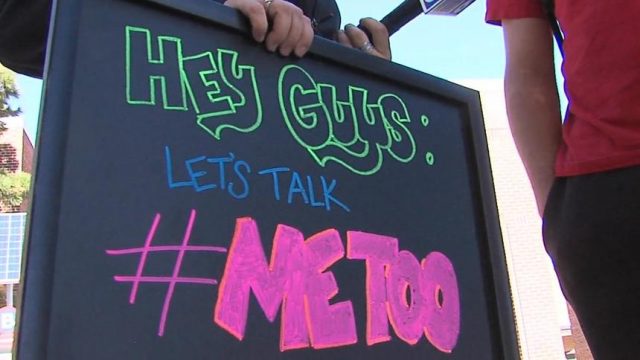Connie Krapp: How Many Generations of #MeToo?

Seems as though in the past several years, from Bill Clinton to Bill Cosby to Bill O’Reilly, a lot of public male personalities have kissed their reputations good-bye as not-so-secret tales of their sexual misconduct have surfaced. As we have watched story after story of harassment, abuse and perversion come to light, we might think, “what is this world coming to?”
What it’s come to is so not new and so not exclusive to Hollywood or Washington, DC. Sexual discrimination is everywhere—in our work places, in our schools, on our streets and in our homes. It is in the largest of our cities and the smallest of our towns. It is on both sides of the political aisle, on both coasts and everywhere in between.
What is good news about sexual discrimination, harassment and abuse today is that victims can talk about it and predators are not so sure they’ll get away with it. Contrast that with the predicament of women in my Baby Boomer generation. We were the first generation of women who entered the workforce in substantial numbers. We were so busy proving we were worthy employees that, when we were the target of sexual discrimination, we figured it just came with the job and that it was something we had to deal with.
[mks_pullquote align=”right” width=”300″ size=”24″ bg_color=”#ffffff” txt_color=”#000000″]So your brother’s buddy tried feeling your breasts when you were in seventh grade. Who did you tell? Nobody.[/mks_pullquote]
We Baby Boomers — most of us could say, “me too.”
I remember how aghast I was in high school at the shame wrought on a girl a grade below our sophomore class when she became pregnant—and decided to continue her education even as her baby bump swelled. Because most girls in her predicament were quickly whisked out of school and into an unwed mother’s home, It was outrageous that she showed her face in public, let alone appear in school every day, in that condition!
Nobody thought less of the father of that baby. It wasn’t even a conversation.
You see, not only were we Baby Boomers raised to be silent about sex, but we were raised to be mute about sexual perversion too.
So your brother’s buddy tried feeling your breasts when you were in seventh grade. Who did you tell? Nobody.
So your priest put his hands in your pants during your first confession. Who did you report that to? Nobody.
So a college dude raped you at a college kegger after you’d had too many beers. With whom did you share? Nobody.
This cloak of silence has choked women of our generation all our lives. You can understand, then, that when we see women stand up and talk about such misconduct, it gives us great hope. Our daughters shouldn’t have to succumb to the idea that their body shapes matter more than their work prowess. They should be judged not on the size of their bra but the depth of their character and integrity of their work.
And if the workplaces of our daughters haven’t evolved to the extent that women are truly free of those who would objectify them, then we damn well better live to see the day that our granddaughters enter a workplace where sexual discrimination is a thing of the past — where they NEVER have to say, “me too.”




